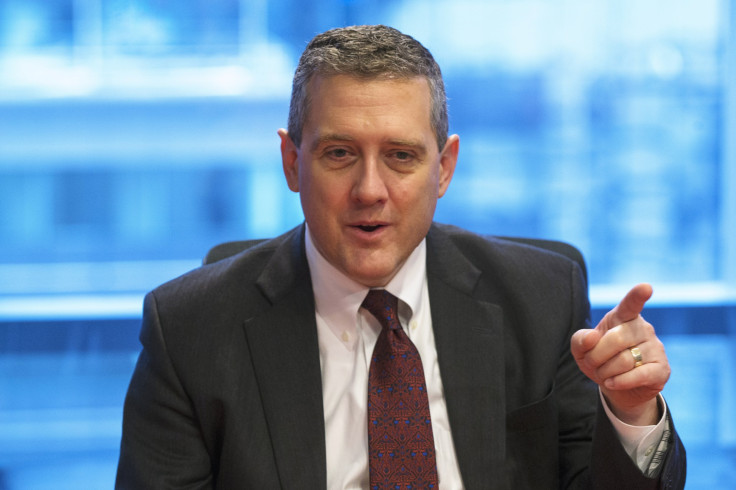China Market Meltdown Shouldn't Delay Federal Reserve's Interest Rate Hike, Says St. Louis Fed President James Bullard

The U.S. central bank shouldn't change its economic agenda as a result of the market meltdown in China, St. Louis Fed President James Bullard said Friday. America's economy and financial markets have emerged relatively unscathed from the recent crisis, so the central bank's Federal Open Market Committee should proceed as planned with raising interest rates next month, he said, as Bloomberg reported.
"The key question for the committee is, how much would you want to change the outlook based on the volatility that we’ve seen over the last 10 days, and I think the answer to that is going to be: not very much,” Bullard said.
Authorities have long said they intend to raise interest rates this year for the first time since 2006. The committee was expected to make the decision official at its Sept. 16-17 meeting. But China's economic slowdown -- and the resulting market panic -- has caused some experts to waver in their conviction and revealed a lack of consensus among Fed officials about the propriety of an interest-rate hike.
New York Fed President William Dudley said Wednesday that hiking interest rates seemed "less compelling" in light of recent events. Minneapolis Fed President Narayana Kocherlakota told CNBC he didn't think raising interest rates was appropriate this year because it would indicate the bank can't reach its goal of 2 percent inflation.
Not everyone agreed. Cleveland Fed President Loretta Mester said the markets' volatility "hasn’t so far changed my basic outlook that the U.S. economy is solid and it could support an increase in interest rates." Bullard seemed to take her side, telling Reuters the market roller coaster wasn't "so radical" that it should cause the committee to switch gears.
“You’ve really got the same trajectory that the committee will be looking at that we were looking at before, so why would we change strategy, which was basically to lift off at some point?" he said.
Yet others just wanted the Fed to definitively choose one path or another. “It’s better for the U.S. to make a decision,” Indonesian Finance Minister Bambang Brodjonegoro told the Wall Street Journal. “What makes the financial markets volatile is the uncertainty.”
© Copyright IBTimes 2024. All rights reserved.






















